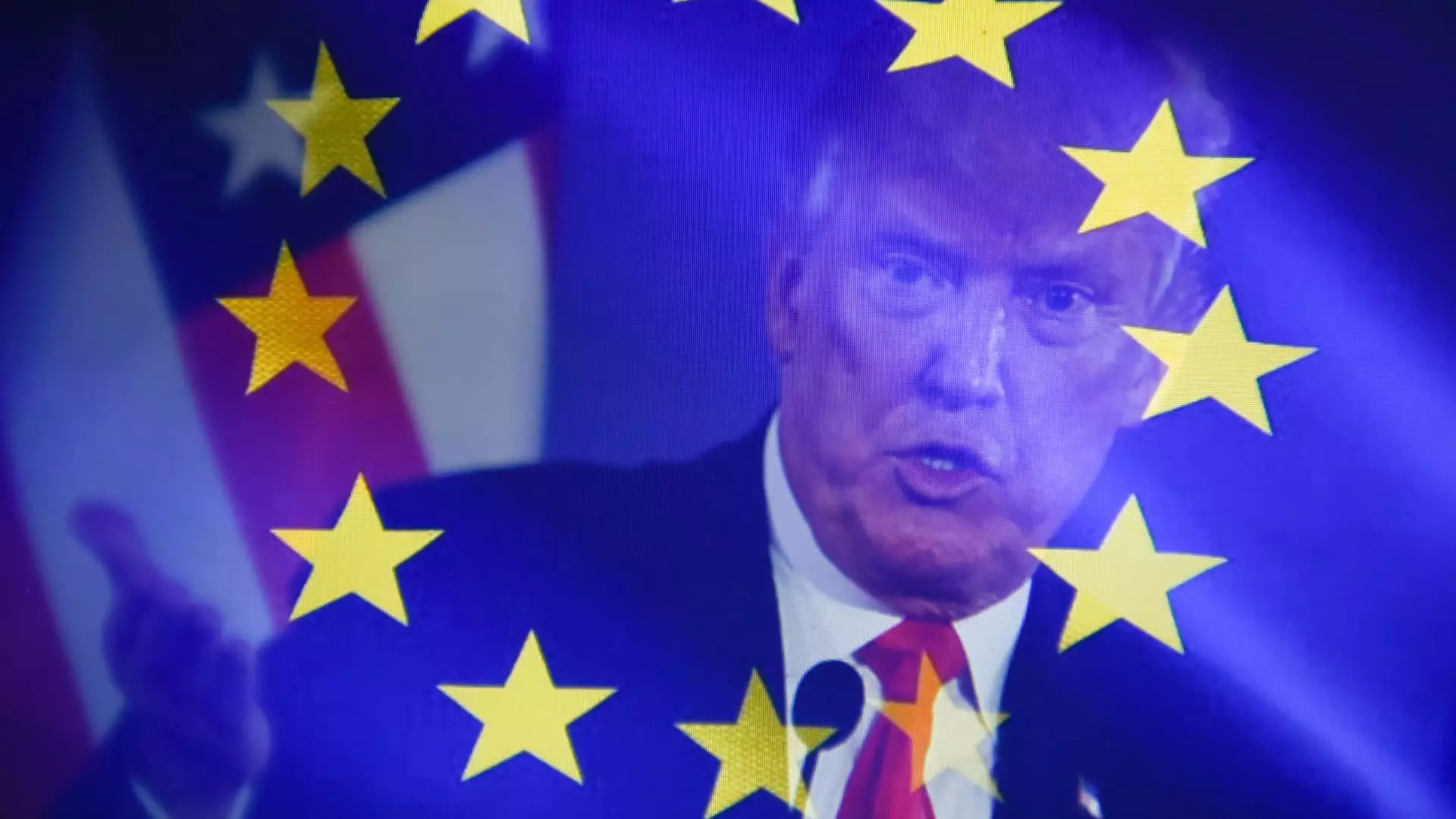The tension between the United States and the European Union (EU) has reached a boiling point, driven by decisions that seem less about trade and more about national pride. Recently, the European Commission President Ursula von der Leyen revealed a temporary halt in the EU’s retaliatory tariffs against U.S. goods, a mere pause in what is becoming a relentless cycle of economic warfare. These tariffs were initially a response to President Trump’s audacious imposition of 25% duties on steel and aluminum imports. This back-and-forth isn’t just political theater; it reflects deeper issues regarding economic strategy and power dynamics.
With the EU’s decision to postpone its retaliatory measures for 90 days, one must question whether this is merely a tactical retreat or an opportunity for genuine negotiation. Von der Leyen articulated a position that many might view as overly conciliatory: “We want to give negotiations a chance.” But does aiming for negotiation in a context marked by aggressive posturing truly serve the interests of the EU? With the imposition of a 20% tariff on a vast array of European goods just a stone’s throw away, the EU appears precariously balanced between dialogue and defense.
The Illusion of Economic Cooperation
The announcement of tariff pauses and negotiations has seemingly thrilled the financial markets, leading to a surge in stock prices across the globe. Yet, this reaction underscores a troubling reality: investors are poised more for profit than for principled economic cooperation. The stock market’s glee masks a truth that tariffs do more than simply modify prices; they harm businesses and consumers, setting off a chain reaction of uncertainty and instability. As von der Leyen astutely noted, “Tariffs are taxes that only hurt businesses and consumers.” This is a simplistic yet powerful observation, yet it begs the question: Are governments willing to act on this understanding, or are they caught in their own political gears?
In the shadow of this escalating trade conflict, the EU is urgently seeking to diversify its trade relationships. The discussion about reducing friction in its single market adds layers of complexity to an already intricate situation. As the EU adopts a multifaceted approach, one has to wonder whether this is a strategy born of pragmatism or desperation. Are they genuinely ready to develop alternative alliances, or is this merely a cover to distract from the brutality of U.S. economic aggression?
Trade Wars and the Question of Fairness
President Trump has consistently articulated the notion that the EU treats the U.S. “very unfairly.” However, the fairness debate surrounding international trade is far more nuanced than what is often portrayed. The U.S. and the EU are interlinked economies with trade flows that, when considered holistically across goods, services, and investments, appear roughly balanced. This raises pertinent questions: Is the trade imbalance genuinely an act of unfairness, or is it an expected outcome of differing economic structures and priorities? Going down this road, one feels the urge to dissect what “fairness” means in a globalized economy.
Perhaps what is at stake is not merely a trade dispute but a broader struggle over what kind of globalization we want to foster. The urge to impose tariffs is an indication of a profound misunderstanding of mutual benefit. In seeking short-term gains, national leaders appear willing to gamble with the lives of everyday citizens, who are ultimately the ones caught in the crossfire of tit-for-tat policies.
The Stakes for Future Generations
As Europe grapples with its relationship with the United States, a broader consideration arises: the long-term implications of this fierce economic rivalry. The ongoing tensions not only dictate the economic landscape but also determine how future generations will view international cooperation. Will they inherit a fractured world of economic protectionism, or will leaders finally learn to prioritize diplomacy over aggression? The question remains whether the powers that be will be inclined to negotiate more comprehensive zero-for-zero tariff agreements that von der Leyen has championed.
The path forward is riddled with challenges, but it also presents an opportunity to reshape international trade. As the world eagerly watches this high-stakes game between two of the largest economies, one cannot help but hope for a resolution that favors mutual collaboration over divisive posturing. What is clear, however, is that the real winners in this economic saga are likely to be those who understand that cooperation, not conflict, is the key to ensuring a stable and prosperous global economy.


Leave a Reply